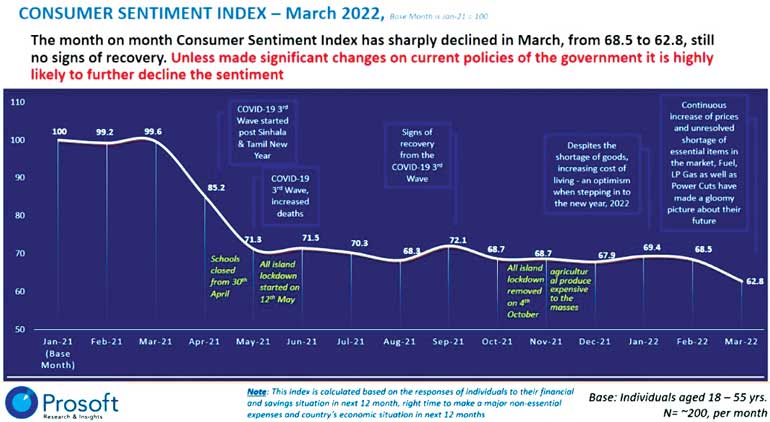Monday Jan 19, 2026
Monday Jan 19, 2026
Tuesday, 12 April 2022 03:57 - - {{hitsCtrl.values.hits}}

The other day we were at a strategic planning session in a company I work for which has a global footprint. The others in the forum were all business leaders from the South Asian region. Let me share the key takes.
PESTEL
The first task we had was to do a PESTEL analysis of our home-country that we were in charge of. So I did it on Sri Lanka. Political – turmoil, Economy – shambles, Social – upheaval, Technology – fallout as no power, Environment – distraction due to poor policy implementation, Legal – politicised hence no consistency.
Strategy
If we mirror this PESTEL analysis on a country like Somalia, Afghanistan or Iraq, the countries will come out stronger. Sad but this is the reality we are in and the only person who is responsible for this situation is the Chief Executive of Sri Lanka the President Gotabaya Rajapaksa. Just like a company the buck stops at the top in success and failure.
Private sector
In this backdrop, we analysed each country’s businesses and we have achieved above the budgeted numbers. We see this not in the technology business that I am in but also in the FMCG sector or service industry due to the sharp talent that Sri Lanka business leaders have skilled themselves with. However, a point to note is that this performance is ‘not’ sustainable in an environment like that one sketched out – PESTEL. We will have many companies crumbling unless we venture out to more stable markets and cushion the shock experiencing in Sri Lanka.
Consumer lesson to private sector
Whilst the private sector and business chambers have gone to slumber due to selfish reasons that are tough to comprehend, we see that the consumer has revolted with absolute anger that Sri Lanka has never seen before. What is unique is that all walks of life have come to the streets with absolute passion and straightforwardness that is a lesson to corporate Sri Lanka. Be it a youngster of 18 years or a senior citizen of 65 years, all have come to express their wrath which led to the cabinet of ministers resigning (it has never happened before in Sri Lanka). Sadly, there is yet no response from the business chambers which is very sad for Sri Lanka.

8-point plan
We have no option but all policymakers must exit the system and we have to rebuild from scratch. We have to reshape the PESTEL so that we can say that the environment is conducive to a consumer to live and business to survive. May be some of the next steps to do are as follows:
1) Appoint a Finance Minister who understands economics who appreciates the role the IMF plays in the global arena.
2) Cut all costs be it small or big – there is no need for opening of international airports like we saw of Ratmalana or flower shows in Nuwara Eliya. To my mind these were indications of absolute arrogance and not being sensitive to the poor voters dilemma faced. Direct all public expenditure for household relief.
3) Engage the IMF and follow their advice. Let’s make sure that we do not abandon their program like in the last 14 occasions. It’s important to revisit the lessons learned from the earlier programs.
4) A new leadership must take ground so that the PESTEL can be addressed. This will go through hurt but unless the political hierarchy also follow suit there will be another revolt.
5) Address the issue of the ‘Easter Sunday attacks’ and get justice to prevail. Some say that the cause of ‘Sri Lanka Spring’ was the non-action of the 259 people who were killed. Let’s clear this hurt as it will give confidence to the people.
6) We must get back the looted money out of Sri Lanka. This must be done with the help of all global actors be it INTERPOL or the engagements of the governments of the world.
7) Bring back the 19th amendment. This is the only time that this effort can work, if not Sri Lanka will have to face a repeat in the next 50 years.
8) Professionals must own up again and be prepared to work for the public sector. There is no option but we have to connect Sri Lanka to the world logistics framework.
9) Drive the focussed industries of Tourism, Tea and BPO Industries. There must be money allocated to the development of brands like what South Korea did rather than just pushing categories.
10) Discipline must be implemented in an unnegotiable fashion. Be it on the road or among politicians. Rule of law must come to play.
(The author can be contacted on [email protected].)